DISCOVERING INSECTS
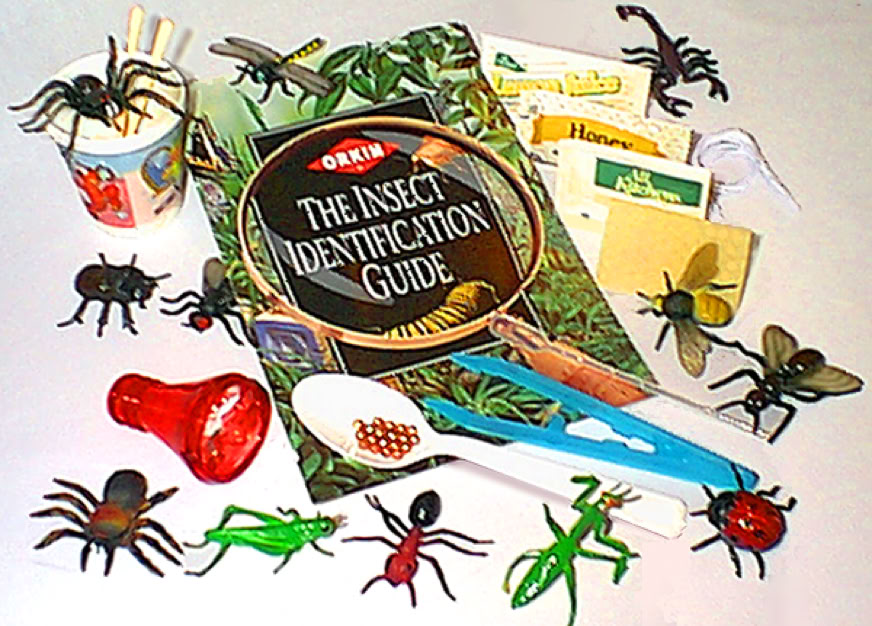
The Insect Identification Guide shown in this photo has been replaced with the Bugs & Slugs Folding Pocket Guide described below.
In DISCOVERING INSECTS you will:
HUNT REAL BUGS OUTDOORS TO WATCH THEIR BEHAVIOR
- Observe how bees and butterflies pollinate flowers and blossoms.
- Study ants and experiment with ant trails
- Join the Great Bug Expedition
MODEL THE SCIENCE OF INSECTS INDOORS
- Classify bugs using a flow chart and 12 plastic models.
- See through compound eyes the way many insects do.
- Study how insects and spiders differ, and study the architecture of
a spider's web.
22 ACTIVITIES IN 13 LESSONS
- Includes a parent guide
- Enough equipment for two children working together.
- Includes 12 MODEL BUGS and an INSECTS IDENTIFICATION GUIDE.
Half the lessons are about studying insects in their natural habitat. When the weather doesn't allow this, use the indoor lessons on modeling and classifying insects.
These lessons were tested at School Works Learning Center with homeschooled students in grades 3-8. The students loved them.
They are probably appropriate all the way down to the first grade level, with a little help.


Shipping Information
Shipping Information
$8.95
Your order will be shipped by UPS ground or Priority Mail. We ship on Saturday morning.
USA destinations only.
Outside the USA:
Sorry, we no longer ship retail orders to destinations outside the USA, except for APO addresses.


Contact Information
Contact Information
WHAT IS INCLUDED?
Everything you need is included in the kit:
Indoor Classification and Modeling
12 plastic model bugs
(ant, queen ant, dragonfly, praying mantis, fly,
grasshopper, bee, ladybug, rhino beetle,
2 spiders and a scorpion)
1 multi-faceted lenses (bug-eye viewer)
1 piece of beeswax
1 packet of honey
2 craft sticks
2 tiny plastic bugs
1 spoon
20 BBs
4 paper clips
2 index cards
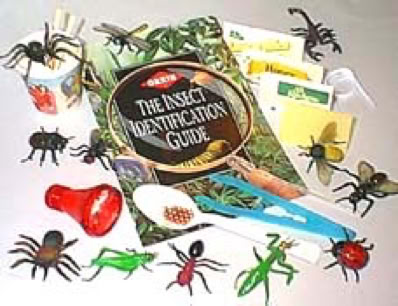
To Guide you on your Exploration
13 Student Lessons with a Parent Guide
(see PDFs of sample lessons in the
table of contents below)
For Outdoor Exploration
1 Bugs & Slugs Folding Pocket
Guide to North American
Invertebrates with full color
illustrations of 143 critters!
1 75mm magnifying glass
durable rubber coated handle
2 plastic forceps
2 craft picks
1 ant trail experiment kit
(packets of lemon juice, sugar,
small paper cups, 2 plastic pipets)
Also available as part of the 42 lesson triple set:
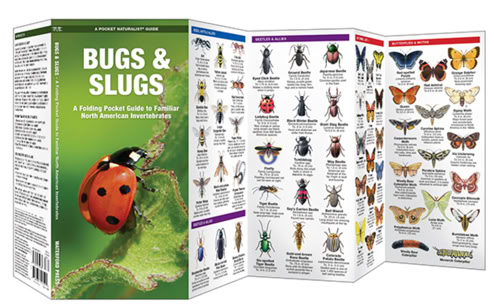
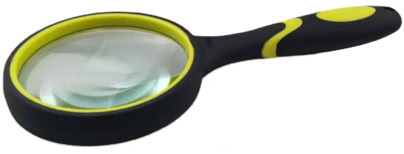

"Insects is my favorite!"
- A. Frog
Plastic models, bug-eye lenses, and other goodies allow children to study insects and arachnids indoors, as well as in their natural environment. And all without having to touch any bugs.
Comes with this super 75mm rubber coated magnifying glass.
Also comes with Student Lesson Book & Parent Guide.
PDF samples can be seen below in the Table of Contents.
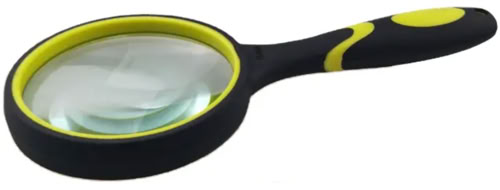
Pop-Ups:
This kit is designed for one or two children who could work together as lab partners.
BEST DEAL: Buy as part of the 42 lesson triple set, MICROSCOPIC EXPLORATIONS, INSECTS AND LIGHT.
NEW! Create your own
2-in-1 kit or 3-in-1 kit and save money.
Save $10 for each topic beyond the first [savings included in prices shown].
Or use this to double or triple the equipment in any one topic.
Choose First Topic . . .
then Second Topic . . .
and Third Topic (optional)
ORDERING
DISCOVERING INSECTS
TABLE OF CONTENTS FOR DISCOVERING INSECTS
1) Spiders Don't Have Wings - Discover what distinguishes insects from arachnids and other bugs.
(CLICK HERE TO SEE PDF OF THIS LESSON)
2) Classifying Bugs - Play a game of classification with model bugs and a flow chart.
(CLICK HERE TO SEE PDF OF THIS LESSON)
3) Bees, Butterflies & Blossoms - Observe how insects gather nectar and pollinate flowers.
4) A Buzzing Chemical Factory - Investigate what chemicals bees make, and enjoy some bee products!
5) Compound Eyes - Try to see the world through an insect's eyes.
(CLICK HERE TO SEE PDF OF THIS LESSON)
6) Jumpers & Skaters - Two insects with unusual ways of getting around.
(CLICK HERE TO SEE PDF OF THIS LESSON)
7) Happy Trails - Discover and explore an ant trail.
8) Experiments on an Ant Trail - Be a scientist by testing theories of ant attraction.
9) Arachnid Architecture - Explore the amazing complexity of spider webs.
(CLICK HERE TO SEE PDF OF THIS LESSON)
10) The Spiral Trap - Watch how a spider uses its web to trap an insect.
11) Inspect Your Insect- Characteristics of some interesting insects.
12) The Great Bug Expedition- Conduct a field study of local arthropod biodiversity
(which means see how many types of bugs you can find in your backyard)
(CLICK HERE TO SEE PDF OF THIS LESSON)
13) Insect Attitude Survey - Do our feelings about bugs

